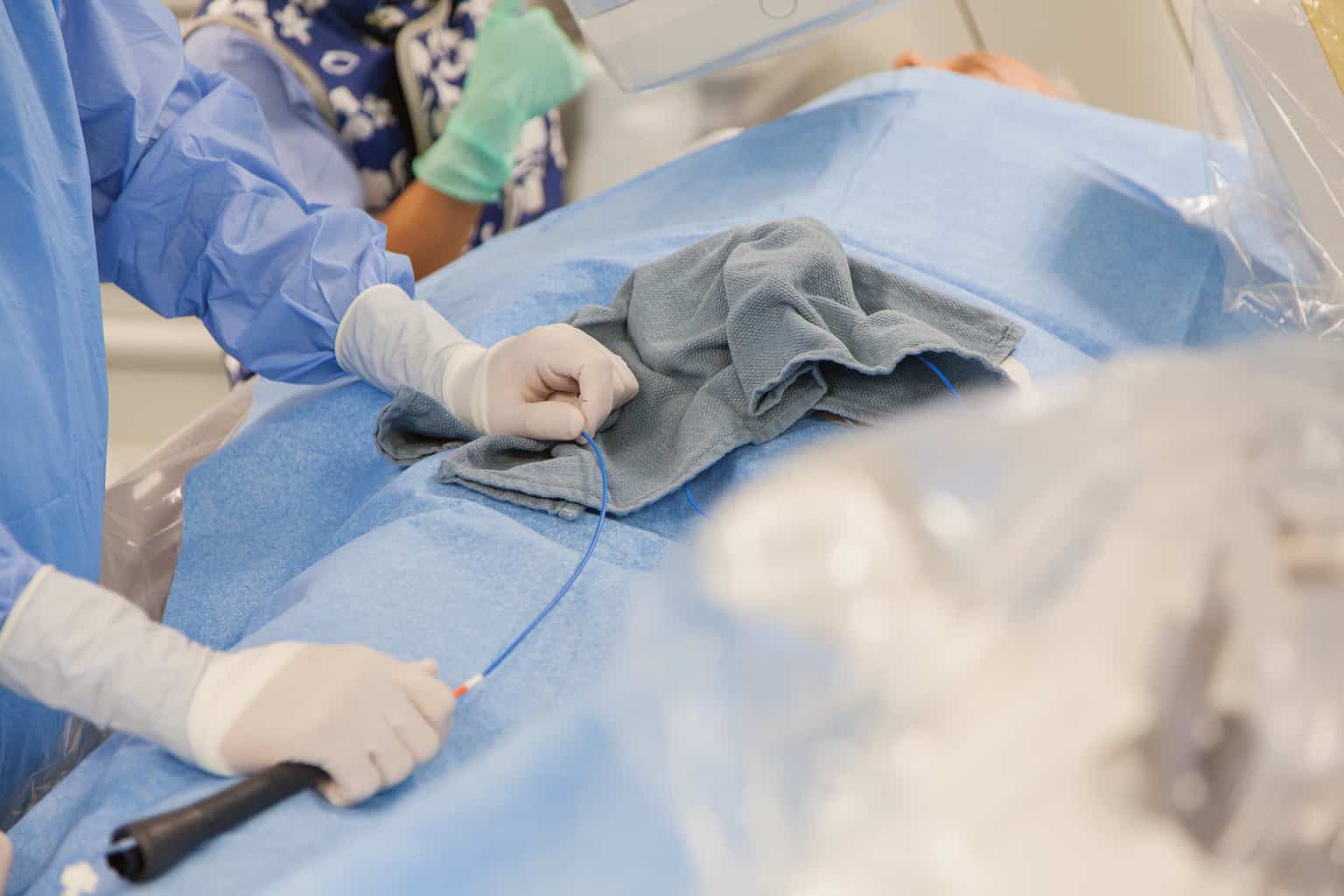
Electrophysiology Lab
The cardiac electrophysiology service at the Hennepin Heart Center provides a wide range of therapeutic modalities for management of heart rhythm disturbances. Our state-of-the-art biplane cardiac electrophysiology laboratory has an advanced, three-dimensional mapping system for managing cardiac arrhythmias and offers the following services:
- 3D Cardiac mapping is a process that can map and detect specific electrical activity of the heart in real time. Any irregularities can be immediately diagnosed and potentially treated.
- Catheter ablation is a procedure which uses long, flexible tubes that are inserted through a vein in your groin and threaded to your heart to correct structural problems in your heart that cause heart rhythm problems.
- Defibrillator implantation is intended for patients at high risk with irregular heart rhythm. This device can find an irregular rhythm and shock the heart back into a regular rhythm. A small incision is made near the heart and the device is connected electrically to the heart.
- Pacemakers are artificial devices that stimulate the heart muscle and regulate its contractions.
- Implantable Loop Recorders, also known as an insertable cardiac monitors, are small devices that are implanted just under the skin of the chest to record the heart's electrical activity.
- Tilt table testing is a test used to evaluate the cause of unexplained fainting. During a tilt table test, you lie on a table that moves from a horizontal to a vertical position. Your heart rate and blood pressure are monitored throughout the tilt table test.

